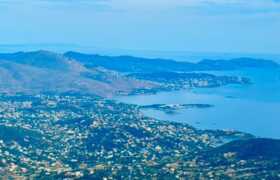In a bold new initiative to promote lesser-visited corners of the Himalayas, Nepal will waive climbing permit fees for 97 peaks over the next two years. The move is aimed at drawing international mountaineers to the remote Karnali and Sudurpaschim provinces, while easing congestion on the world’s most famous summit—Mount Everest.
The announcement comes alongside a significant change to Everest’s permit structure, with fees to climb the 8,849m peak during the peak April–May season rising to $15,000 from September 2025—the first increase in nearly a decade. Off-peak climbs will cost $7,500 in autumn and $3,750 in winter.
Home to eight of the world’s ten tallest mountains, Nepal generated $5.9 million in mountaineering revenue last year, with Everest accounting for more than three-quarters of that. However, many of the newly opened peaks, ranging between 5,970m and 7,132m, remain almost untouched—only 68 climbers have ventured there in the past two years.
“These peaks are breathtaking, but their remoteness has kept numbers low,” said Himal Gautam, Director of Nepal’s Tourism Department. “We believe this will create jobs, generate income, and strengthen the local economy.” Both Karnali and Sudurpaschim rank among Nepal’s poorest and least-developed regions, with limited tourism infrastructure.
The fee waiver is also seen as part of a broader effort to improve mountain safety and sustainability. Nepal’s Supreme Court recently ordered restrictions on Everest and other major peaks, urging the government to respect capacity limits. Lawmakers are also debating a new requirement for Everest aspirants to first summit a mountain over 7,000m in Nepal—making the newly promoted peaks “ideal training grounds” for climbers.
Despite their scenic beauty, questions remain over infrastructure readiness and the ability of local communities to accommodate a surge in visitors. Still, with Everest’s popularity continuing to surge—421 permits were issued for the 2024 season—the plan signals Nepal’s determination to spread tourism benefits beyond its most famous mountain.
Visit https://ntb.gov.np/
Older
Lisbon’s Beaches Awarded for Accessibility
Newer
Pinwheel Partners with Fauna & Flora to Boost Corporate Nature Conservation
Source: breakingtravelnews.com








